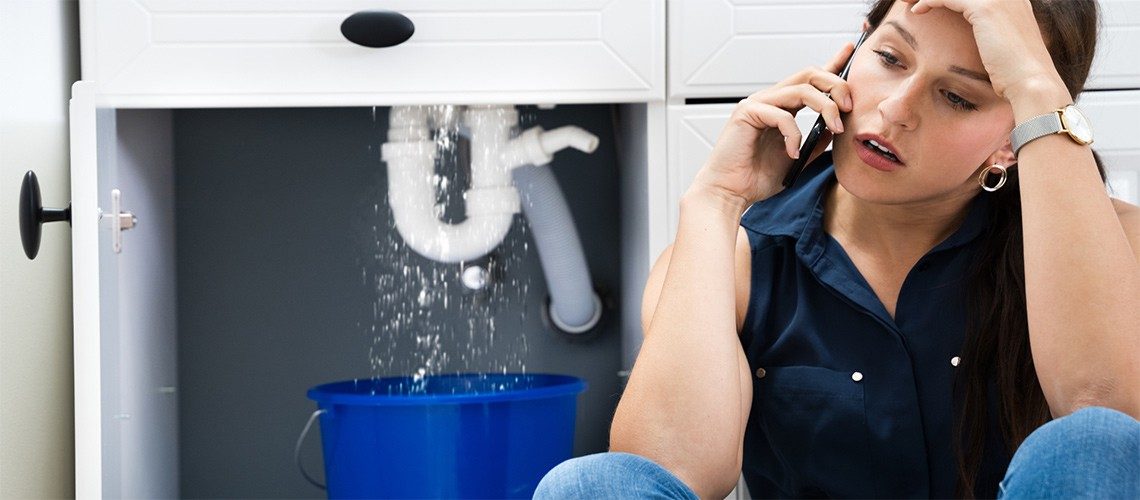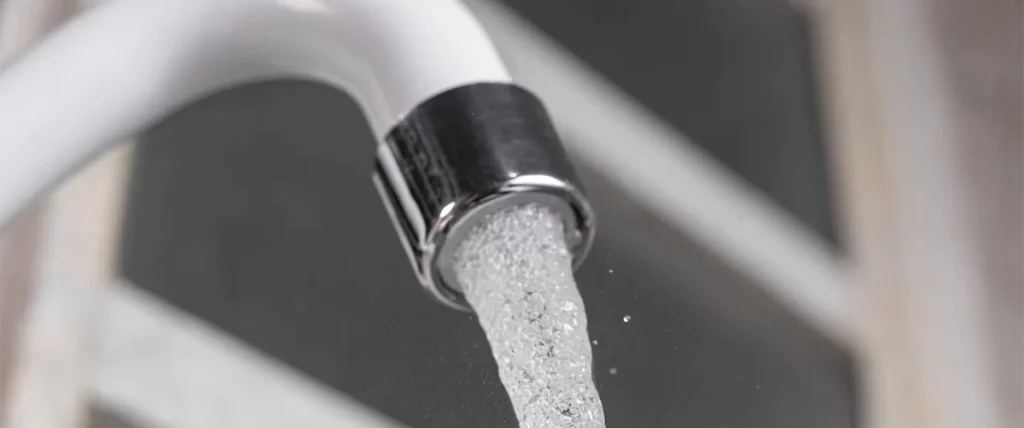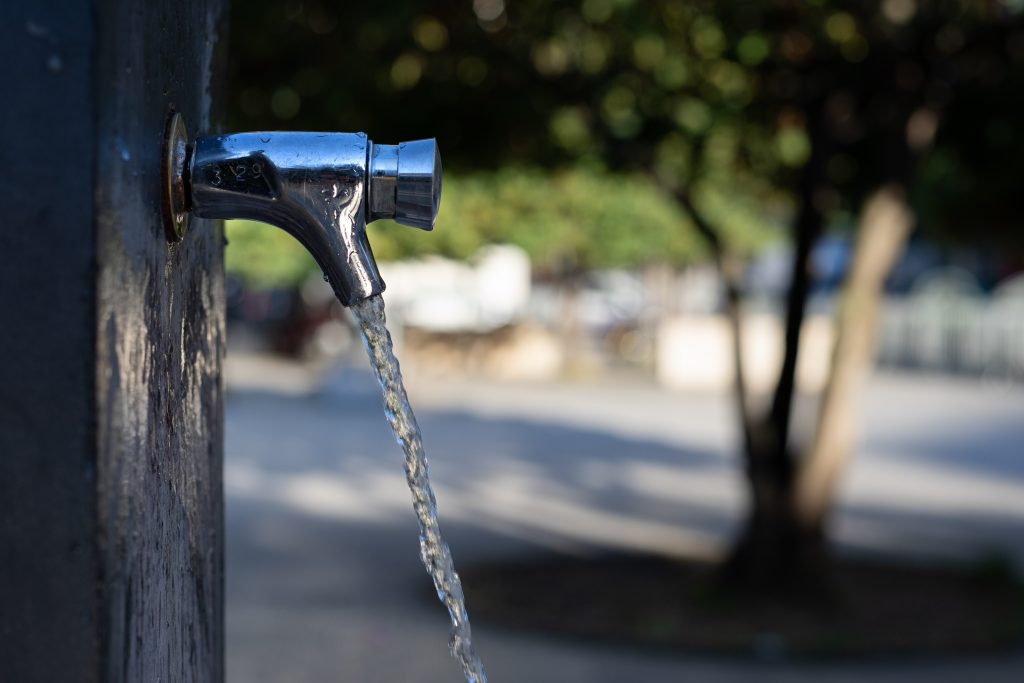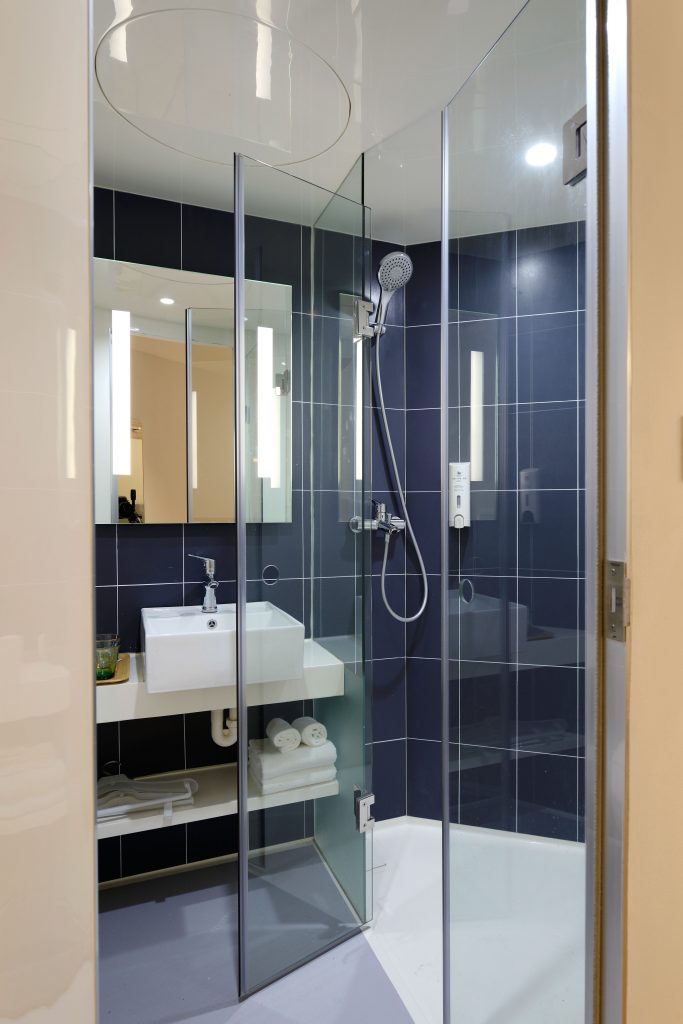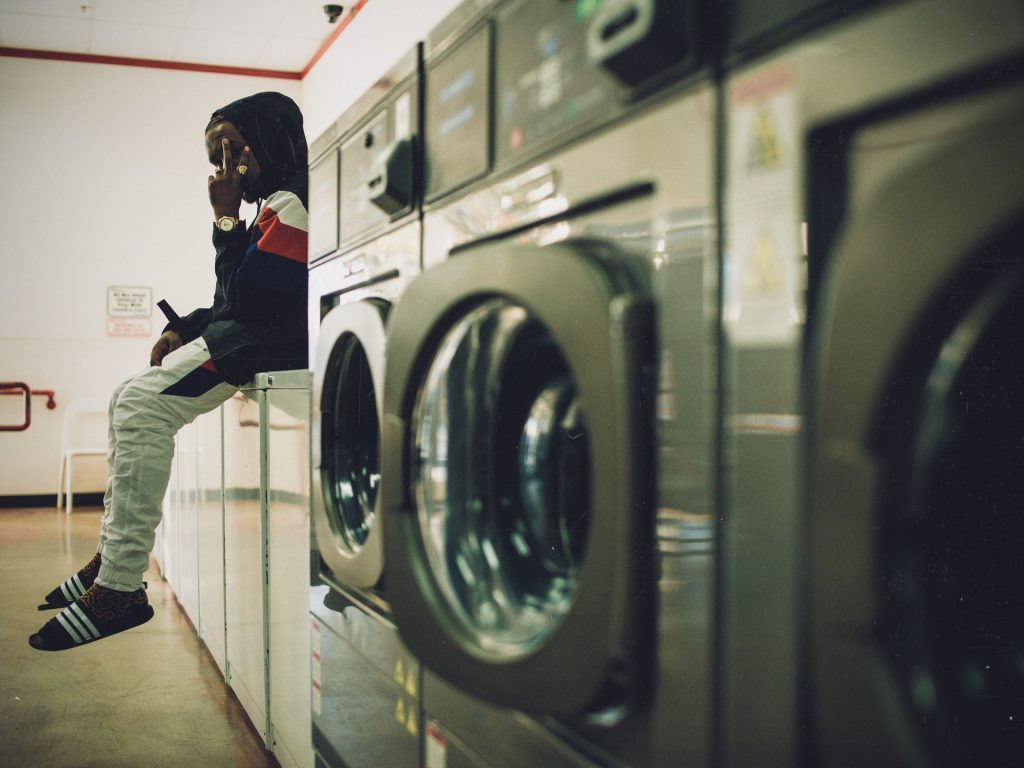Everyone encounters plumbing problems at some point. Knowing how to deal with emergencies will allow you to control the problem so that you can deal with it quickly and not let it cause significant damage to your home. Calling a plumber is the best way to fix the problem, but you also need to know how to get the situation under control before he comes to you. Water can cause significant damage to your home, so it pays to know how to minimize the damage.
Contents
- 1 Critical Steps: How to Locate Your Main Water Shut-Off Valve
- 2 What is a Plumbing Emergency? The Most Common Problems
- 3 How to Deal With Plumbing Emergencies?
- 3.1 1. Stop the Water Flow
- 3.2 2. Assess the Situation
- 3.3 3. Address Minor Leaks
- 3.4 4. Unclog Drains Carefully
- 3.5 5. Address Toilet Overflows
- 3.6 6. Prevent Further Damage
- 3.7 7. Call a Professional Plumber
- 3.8 8. Prevent Future Emergencies
- 3.9 No. 1: The faucet is leaking boiling water
- 3.10 No. 2: A dripping faucet.
- 3.11 No. 3: Frozen water in the pipes
- 3.12 No. 4: Leaking pipes.
- 3.13 No. 5: A leaky water heater
- 3.14 No. 6: Blockages and clogged pipes
- 3.15 No. 7: The clogged toilet.
- 3.16 No. 8: Unpleasant sewer odour
- 3.17 No. 9: Increased noise in the garbage chute
- 3.18 7 The Most Famous Cases of Plumbing Emergencies from POM Clients
- 4 Emergency Plumbing Help: 4 Advices How to Act Correctly
- 5 Why You Need a Licensed 24/7 Plumber in GTA
- 6 How to avoid plumbing emergencies: preventive measures
- 7 Instead of Conclusions: Actions in Case of a Plumbing Accident
Critical Steps: How to Locate Your Main Water Shut-Off Valve
In a plumbing emergency, panic is your worst enemy, but speed is your best defence. Every second that water gushes uncontrolled equates to rising restoration costs and potential structural damage. Before dialling a professional, your immediate priority must be cutting the water source.
Finding the main shut-off valve can be tricky in the heat of the moment. In most Toronto homes, this valve is located in the basement, typically on the perimeter wall facing the street, or in the utility room near the water meter. Know what you are looking for:
- Gate Valves: These look like a wheel (similar to a hose spigot). Turn it clockwise (to the right) until it stops to close it.
- Ball Valves: These look like a lever handle. Turn the handle so it is perpendicular (at a 90-degree angle) to the pipe to stop the flow.
Once the main water is off, we recommend opening a faucet on the lowest floor of your home to drain the remaining pressure from the pipes. We strongly advise that every homeowner label this critical valve with a bright tag today; don’t wait for a crisis to go searching for it.
What is a Plumbing Emergency? The Most Common Problems
What is considered a plumbing emergency? To understand how to deal with a problem, it’s worth finding out what is a plumbing emergency first. The win-win option is to stop plumbing and call a qualified plumber if you find a leak or any other problem you don’t know how to solve. Here’s a look at the most common plumbing problems that require immediate intervention and in which emergency plumbing service will help.
How to Deal With Plumbing Emergencies?
Dealing with plumbing emergencies efficiently can prevent significant damage and costly repairs. Here’s a guide on how to handle common plumbing issues:
| Plumbing Emergency | Immediate Actions | Follow-Up Steps | Preventive Measures |
| Burst Pipe |
|
|
|
| Overflowing Toilet |
|
|
|
| Clogged Drain |
|
|
|
| Water Heater Leak |
|
|
|
| Sewage Backup |
|
|
|
| Leaking Faucet or Pipe |
|
|
|
| Gas Leak (if related to plumbing, e.g., water heater) |
|
|
|
1. Stop the Water Flow
- Shut off the water: Immediately turn off the nearest water source. For toilets, this might be the valve at the base or behind the toilet. For larger emergencies, you may need to shut off the main water valve to the house.
- Open faucets: After the water is shut off, open the faucets to drain the remaining water out of the pipes and reduce the pressure.
2. Assess the Situation
- Identify the source: Determine where the problem is coming from. Is it a burst pipe, a leaking faucet, or a backed-up drain?
- Evaluate the severity: Decide if this is something you can handle on your own or if you need to call a professional.
3. Address Minor Leaks
- Contain the leak: Use buckets, bowls, or towels to catch drips. If you can locate the source, use plumber’s tape or a temporary sealant to slow the leak.
- Take photos: For insurance purposes, document any damage caused by the water.
4. Unclog Drains Carefully
- Use a plunger: A plunger can often dislodge clogs in toilets, sinks, and drains without the need for harsh chemicals.
- Consider a plumber’s snake: For tougher clogs, a hand-cranked drain snake can remove blockages deeper in the pipes.
5. Address Toilet Overflows
- Stop the flow: If the toilet continues to run, turn off the water supply valve.
- Plunge effectively: Ensure you have a good seal and use the plunger vigorously to dislodge the blockage.
6. Prevent Further Damage
- Remove water quickly: To prevent mold and water damage, clean up standing water with mops, towels, or a wet-dry vacuum.
- Ventilate the area: Open windows or use fans to dry out the affected areas.
7. Call a Professional Plumber
- Know when to call for help: If the problem is beyond your skills or tools, don’t hesitate to call a professional plumber. This is crucial for major leaks, burst pipes, or if sewage is involved.
- Choose a reputable service: Look for licensed, well-reviewed plumbing services that offer emergency calls.
8. Prevent Future Emergencies
- Regular maintenance: Schedule regular inspections and maintenance of your plumbing system to prevent future emergencies.
- Learn main shutoff locations: Everyone in your household should know where the main water shut-off valve is and how to operate it.
By following these steps, you can manage plumbing emergencies more confidently and mitigate potential damage to your home.
No. 1: The faucet is leaking boiling water
It’s nice to shower in warm water, but not in boiling water. If the shower or faucet water is too hot, it is unsafe. Most often, this is due to a malfunction of the water heater – it has overheated. You can try to turn it off, and then you should open the hot water taps. Boiling water will drain, after which cold water will flow. Next, you can call a repairman.
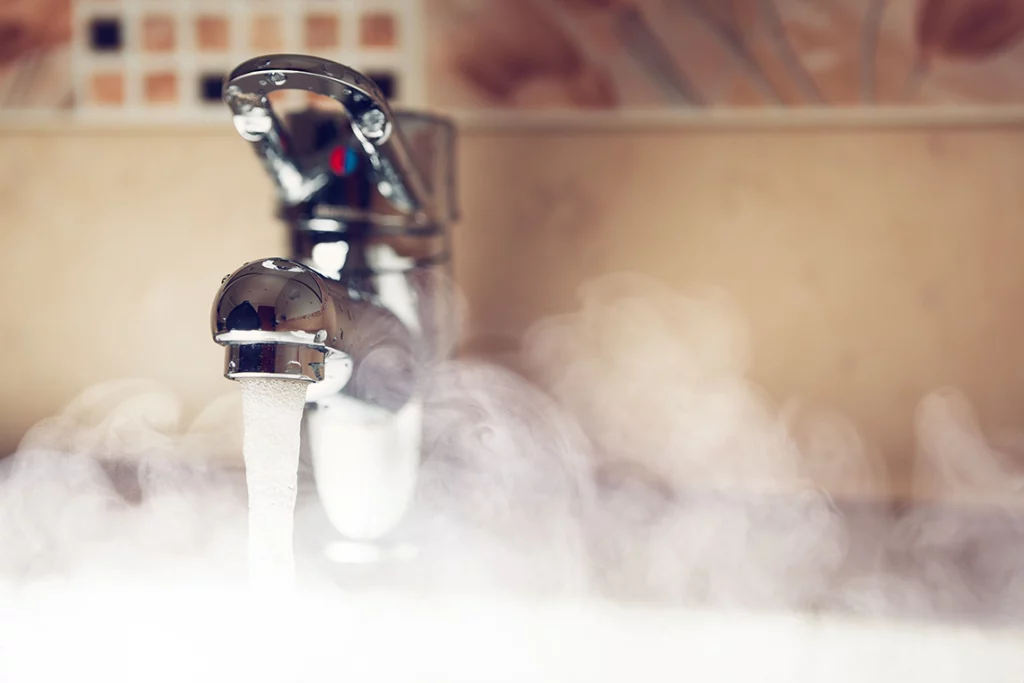
No. 2: A dripping faucet.
A dripping faucet is an annoying breakdown, but it is not an emergency. In the future, small drips can transform into large leaks if you apply a wrench to the shut-off valve. This tool can jam the valve in the open position or break it altogether.
You can fix a dripping faucet by shutting off the water and inspecting the plumbing. You can fix a small leak if you understand how to do it correctly. If in doubt, however, it is best to call a plumber to avoid an accident.
No. 3: Frozen water in the pipes
With the arrival of cold weather, the number of calls to plumbers to repair burst pipes increases significantly. Frozen pipes are a real headache. If the pipes inside or outside the house are frozen, you should scrutinize them. Check the location of the break, and assess the condition of the fittings. If you notice that the pipe’s integrity is compromised, it is worth immediately calling a plumber.
If no damage is detected, you can try to warm the pipe with a hair dryer at minimum power of warm air. At the same time, it is necessary to warm the entire pipe, not just a particular section. At the same time, you should observe safety precautions and keep the electric device away from water. Never use an open flame to defrost a pipe. You could damage the pipe that way.
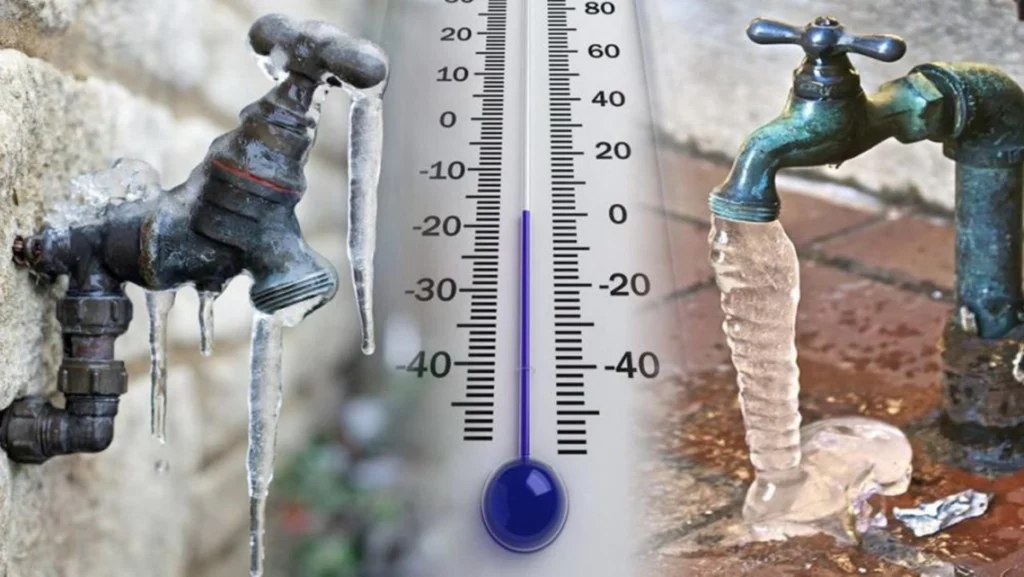
No. 4: Leaking pipes.
If you have a leaking pipe, there is almost nothing you can do in this situation. The first thing to do is to shut off the main water valve in your home, after which you should contact a plumber. Is a leaking pipe an emergency? A leaking pipe requires the attention of a specialist and a complete replacement. It also does not hurt to have a technician check the condition of other utilities.
Note that many household plumbing fixes at home can lead to leaks. Suppose you need help with how to properly deal with the problem. In that case, it is best to avoid making homemade patches and not pour various chemical solutions into the pipeline. In the future, it will not complicate the professional repair and does not aggravate the problem even more.
No. 5: A leaky water heater
A leaking water heater can provoke severe damage to walls and flooring. If the plumbing starts to leak, it’s a good idea to quickly shut off the cold water supply to the equipment. You can find a valve on the water heater or on the side. As a precaution, you can also shut off the main valve on the entire house’s water supply. Having turned off the water, you need to turn off the water heater as well. After that, you can calmly call a specialist and wait for his arrival.
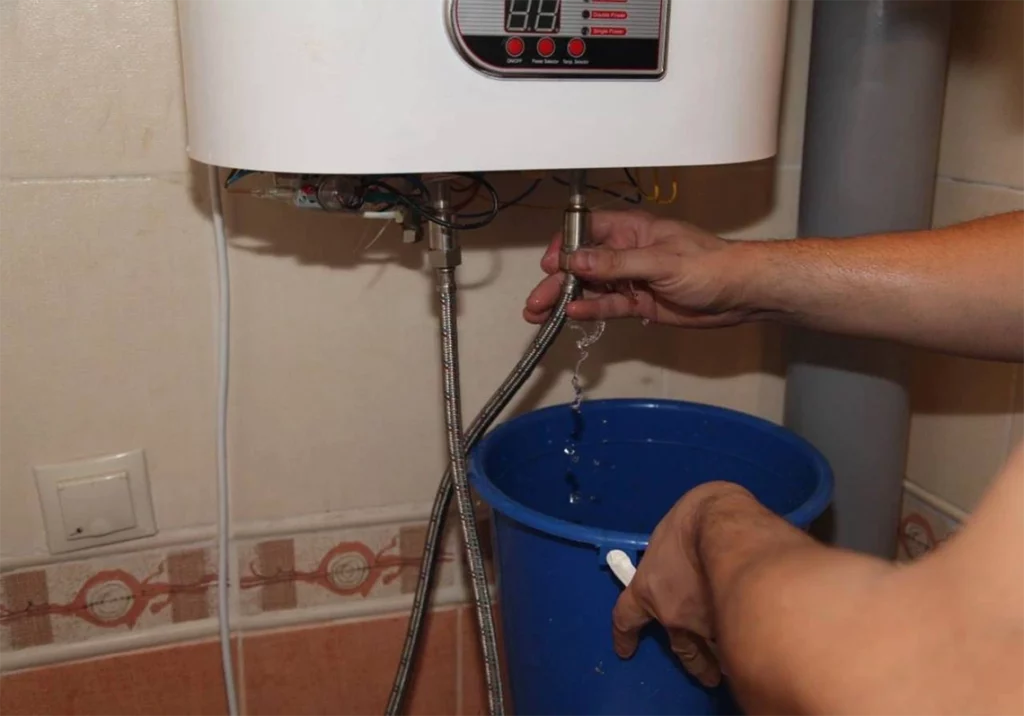
No. 6: Blockages and clogged pipes
If your drain empties very slowly or no water enters it, this is already a severe problem. You can try to clear the clog yourself using a plunger. If it does not give a proper result, you can try special chemicals for removing clogs. Make sure that the selected composition is suitable for cleaning drains. Please note that you should only use reagents if the drain is clear. First, it is worth trying a plunger, after which you can twist the product into the drain pipe.
Always at the occurrence of a clog, it is best to contact the master because this symptom may indicate the backup of wastewater. Only professionals will be able to deal with this.
No. 7: The clogged toilet.
A clogged toilet is a fairly common problem. You can remove the clog by using a plunger. If this method fails to bring proper results, it is worth contacting a plumber. If the toilet begins to leak, it is worth opening a barrel and examining the flap seal in what state. You can buy a repair kit for the toilet in a hardware store. Suppose your toilet leaks seriously on the floor or in the bowl. Is a water leak considered an emergency? In that case, it is worth immediately calling the master. Leakage can be triggered by a variety of factors. So shut off the toilet valve and call for professional help.
No. 8: Unpleasant sewer odour
If your home has an unpleasant sewer odour when you turn on the faucet or the foul odour is coming from a leak, you should contact a professional immediately. The unpleasant smell may be due to the septic system not working correctly, a broken drain pump, or other plumbing equipment.
No. 9: Increased noise in the garbage chute
Many garbage disposals shut down in the event of an accident. With this feature, an even bigger problem can be prevented. A mechanical hum can indicate broken garbage disposal even when the unit is turned off. In this situation, it’s worth resetting it.
If your shredder works poorly or does not work, you can try cleaning the clog yourself. To do this, you should take a 6-sided wrench and insert it into the shredder button. Once it locks in place, you need to twist it right and left a few times – this action will set the blades and debris removal elements in motion to push out the objects that caused the clogging of the device. You can also use pliers to clean it.
Suppose none of the methods gave proper results. It is worth contacting a professional if the garbage disposal does not respond to turn on and does not make noise.
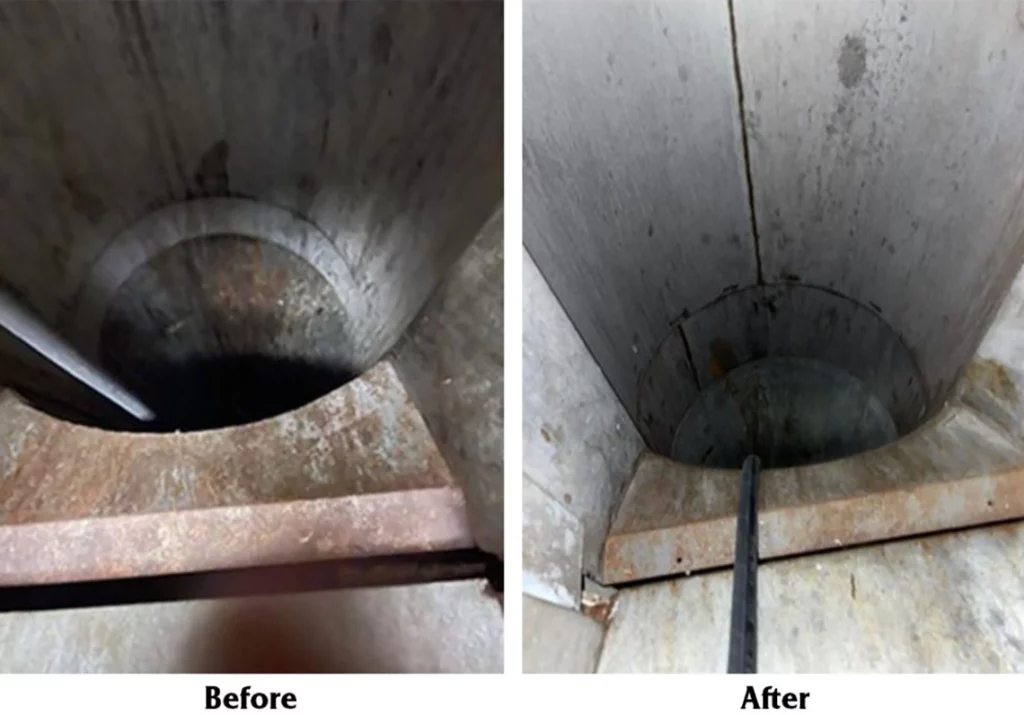
7 The Most Famous Cases of Plumbing Emergencies from POM Clients
Plumbing problems may be different. The most common issues people encounter are the following.
- Clogged pipes. Clogs occur for various reasons, but it often involves draining things down the drain that shouldn’t be there. So it’s worth investing in drain nets and doing drain maintenance from time to time, clearing a variety of buildup from the sewer by draining hot water. In some cases, it needed a plumbing emergency.
- Frozen pipes can burst pretty quickly. If the lines are frozen, they need to be thawed out as soon as possible.
- Sewer backups. This is a severe problem that is often very messy. In case of a plumbing accident, a professional should be called in to do an emergency sewer drain. Pipes get clogged for various reasons: tree roots and flushing things down the toilet that shouldn’t be there. Remember the most important rule – only human waste or toilet paper could be flushed down the toilet.
- Leaking pipes. Inevitable leaks consider as emergencies. In some situations, leaking pipes may cause the ceiling to collapse. Suppose you notice water stains on the ceiling or your water consumption has increased dramatically on your bills for no objective reason. In that case, it’s worth seeking help from a professional plumber.
- A dripping faucet from pipes is not only annoying, but it also not cause an emergency. Tiny drops in pipes turn into a full-blown leak.
- Leaking water heater. A water heater leak pipe cause the floor and walls to suffer significant damage. To ensure the water heater is the problem, you need to have it checked.
- Unpleasant-smelling sewage. Suppose the water in the house has acquired an unpleasant sewer odour. The characteristic smell appears when you open the faucet, or the smell comes from a leak. You need to urgently contact a plumber for help. The unpleasant smell of the sewer often indicates a problematic emergency situation with the drain pump, septic system, or any other plumbing system. It is not worth trying to fix this system on their own to not create a health hazard – their own and their housemates.
Emergency Plumbing Help: 4 Advices How to Act Correctly
If we have figured out what is considered a plumbing emergency, we can move on to practical tips for solving it. Plumbing emergencies can be terrifying for some. But in this situation, it is worth keeping a sober mind to take specific actions to minimize damage. It’s also worth worrying about one nuance beforehand – find the phone number of a professional 24-hour plumbing crew that you can call for help. Keep a list of contacts of the wizard, so you can easily and quickly dial it in case of an accident.
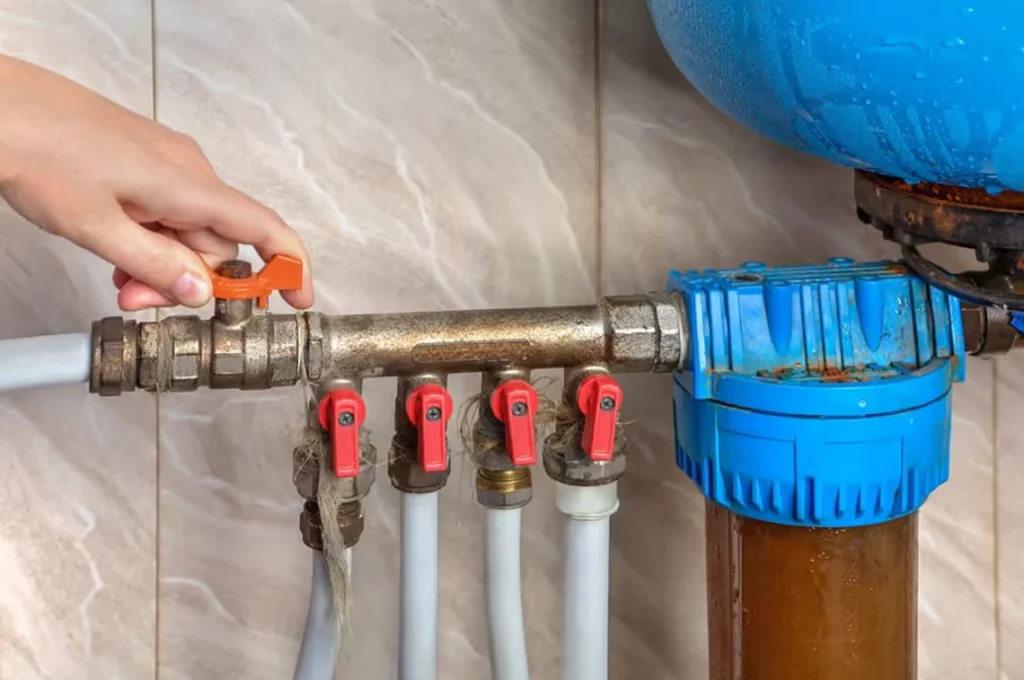
No. 1: Shut off the water.
The first thing to do is stop inc plumbing to minimize water damage. In the toilet, the valve is at the base or behind it. Most often, in the event of an accident, mainly if it is pretty severe, you need to shut off the main water valve. It is often located on the outside wall of the building near the water meter. You can shut it off by turning it clockwise (most often, it should be crosswise to the pipe). After you shut off the water, open all the taps in the house. This way, you can drain all the water in the pipes. This will, in particular, move the water away from the point of breakage.
No. 2: Find what the problem is
The problem with your plumbing system can be pretty obvious, or it can be hidden inside. If you have a simple leak, you should plug it in using special plumbing tape or a trivial towel. This method will give you some time while a plumber comes to you to fix the leak.
No. 3: Call a plumber
Get professional help with plumbing problems from a qualified plumber. There are quite a few situations where you can only do this with the help of a professional. You need to call a plumber as soon as possible. Industrial plumbing supplies should also be serviced by a separate specialist. While you are waiting for him, it is worth wiping up the water that leaked. An emergency plumber may return the water supply to the house or temporarily remove the clog and perform other manipulations in the first phase. But he will have to continue repairing the next day to completely solve the problem.
Separately, it is worth noting the cost of services. Emergency plumber offers higher rates for the work. You should call a regular plumber during standard office hours to save money.
Why You Need a Licensed 24/7 Plumber in GTA
Plumbing disasters rarely happen at convenient times. A burst pipe in the middle of a freezing night or a sewage backup during a holiday dinner can quickly turn into a nightmare. In these critical moments, waiting for “business hours” is not an option. POM Plumbing provides true 24/7 emergency service across the Greater Toronto Area, ensuring that help is always just a phone call away.
Our fleet consists of “warehouses on wheels” trucks fully stocked with specialized parts, pipes, and advanced diagnostic tools. This allows us to resolve the vast majority of emergencies on the very first visit, without the need to wait for supply stores to open the next morning.
Additionally, trying a DIY repair during an emergency can be an expensive mistake. Most home insurance policies require proof that licensed professionals carried out emergency repairs to substantiate water damage claims. By hiring our certified team, you ensure that the work complies with strict local building codes, protecting both your home’s structural integrity and your insurance coverage.
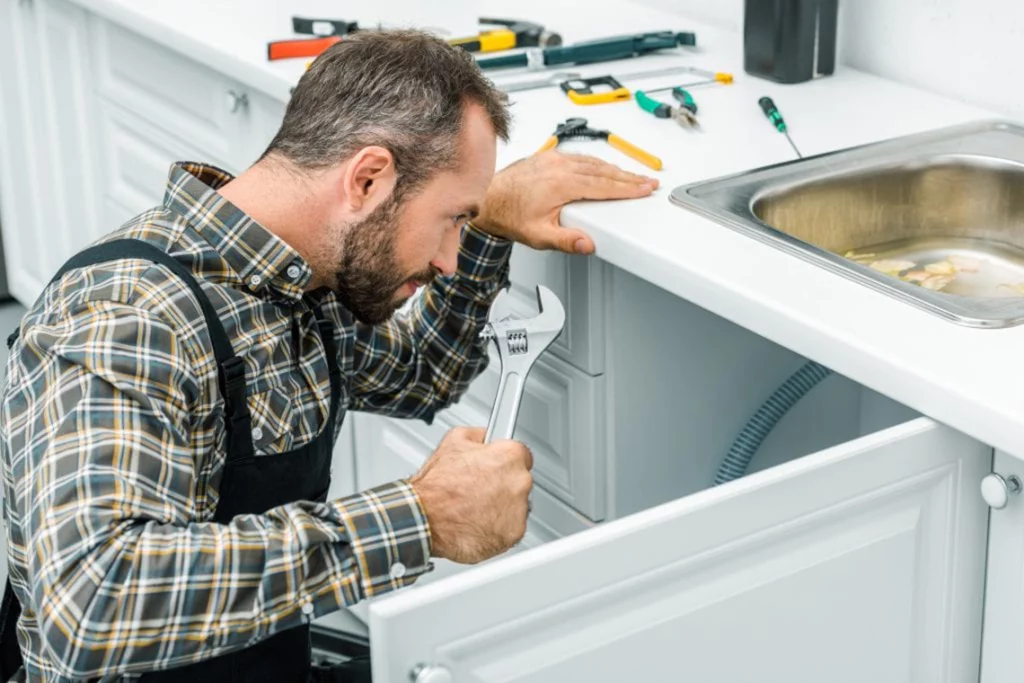
No. 4: Don’t try to fix everything yourself
Doing repairs yourself can only make things worse. It is best to seek help from professionals. If you have an accident at home, keep your cool. Still, the problem with a closed valve and towels, call a plumber and wait for his arrival without doing anything else.
How to avoid plumbing emergencies: preventive measures
If you don’t want to need emergency plumbing issues, it pays to keep your plumbing and drains in good condition. Problems often appear suddenly, but any breakdown often results from prolonged improper use, lack of regular maintenance or improper repair. To prevent emergencies, the following plumbing help advice is worthwhile.
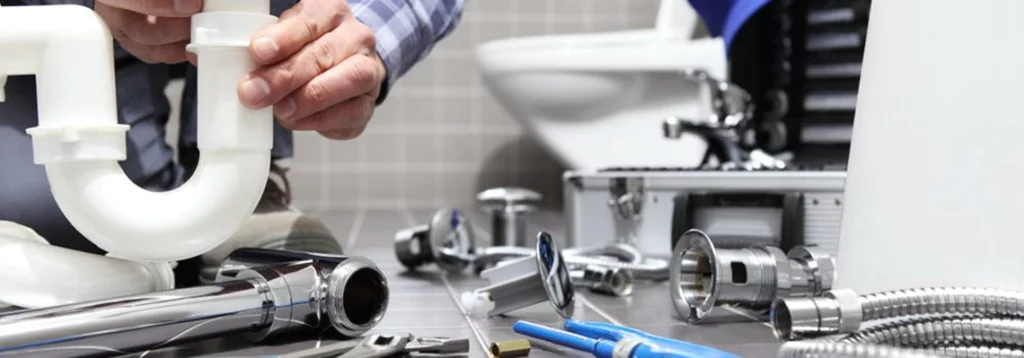
Clean drains periodically.
Drains are always overused in the home. They are the ones that often get food debris and other particles that can clog them. A clogged sink is a real problem. You can prevent it with regular drain cleaning. In this situation, there are better ideas than using store-bought drains. It is best to pour boiling water down the drain regularly. You can also additionally add baking soda and vinegar to the hot water.
Also, in the kitchen and bathroom drains, you should put special nets preventing debris from getting into the pipes. In addition, remember that you cannot pour grease into the sink or toilet. If you use the garbage chute, you should only throw some garbage at once. Throw it away gradually, in portions.
Find out beforehand where the valves are in the house.
If there is a problem with the water, you should always be ready to stop it immediately. That’s why you should find out in advance where the water valves are located in the house. It is also worth checking their performance. To do this, you should turn them on/off several times, checking how easily they move and whether they will work in case of an accident. If your valves are corroded, they should be replaced.
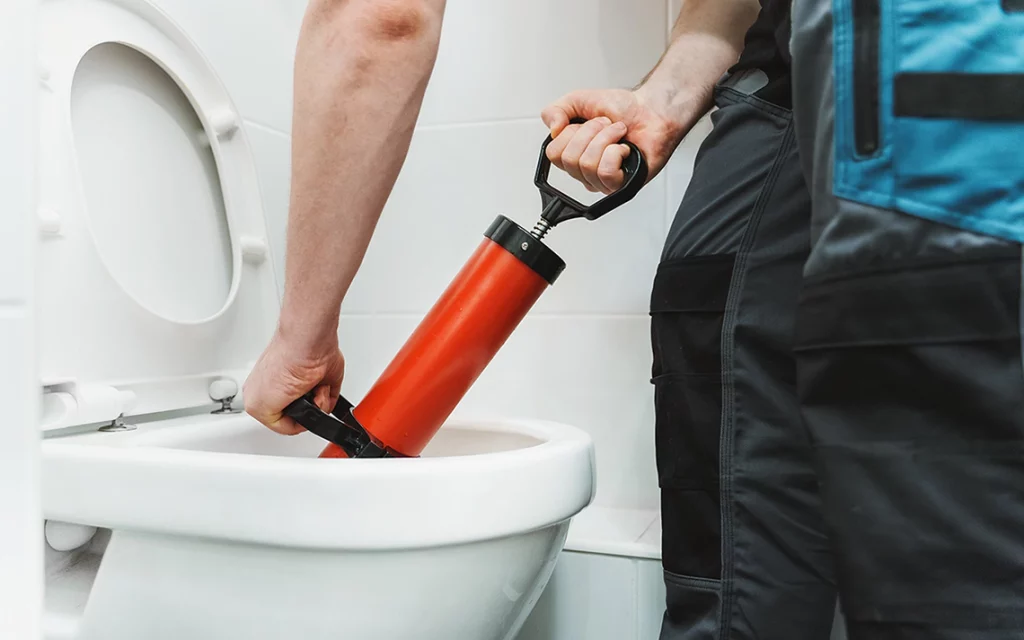
Keep your piping manageable.
Over the years, pipes have worn out. As a result, they can leak, causing flooding. To keep your pipes in good condition, you should install water softeners that minimize the concentration of minerals and other substances, making the water softer. In addition, with the help of softeners, you will be able to avoid streaks on dishes. They are also beneficial to the body of the household, as soft is good for the skin. Well, the easiest way to save pipes is to save water.
Maintain your water pipes regularly.
Keeping your pipes in good condition and minimizing the likelihood of accidents will help with periodic maintenance. To do this, it’s worth getting a plumber to check the condition of the shut-off valves on various plumbing fixtures in the house: toilets, sinks, and hot water tank. It is also worth going over the pipes periodically every 1-2 years with a plumbing snake to remove minor clogs.
Instead of Conclusions: Actions in Case of a Plumbing Accident
If you need help with what to do in case of a plumbing accident, we suggest you read our small step-by-step guide, which presents the basic steps.
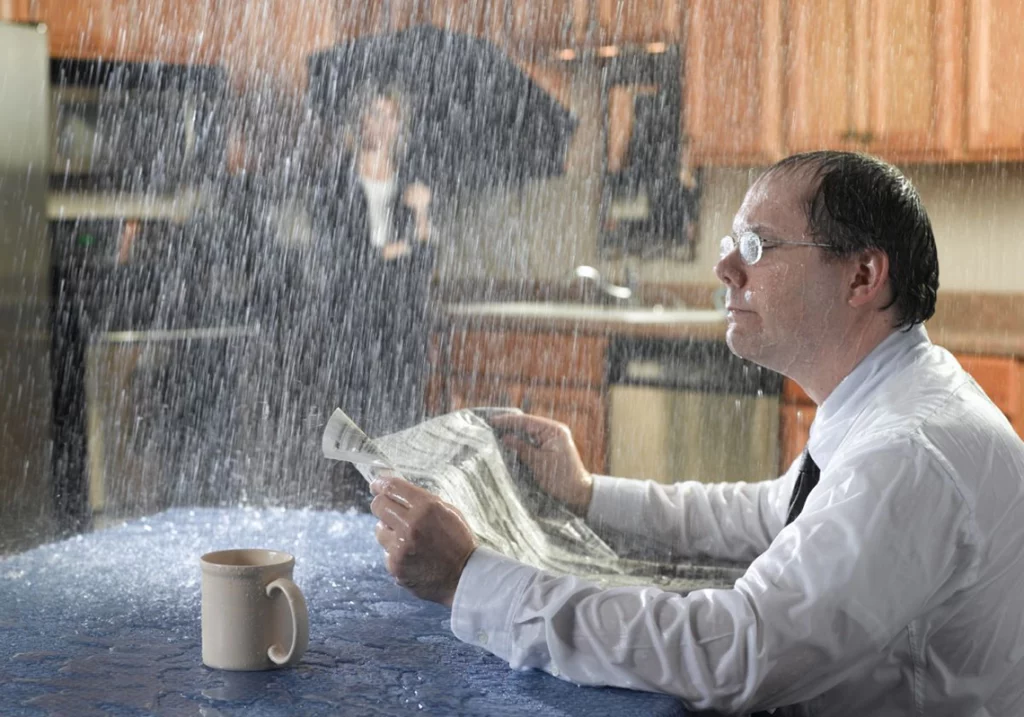
- Shut off the water. Whenever a breakdown occurs, you need to know what to do in a plumbing emergency. The first thing to do is to shut off the nearest water source. The easiest way is in the toilet – you must turn the valve at the bottom or behind the toilet. If the situation is much more complex, you need to shut off the main riser in the house. This often involves turning the valve clockwise to shut off the water.
- Find out what the problem is. The ability to assess the problem depends on the difficulty level of the breakdown itself. If the fault is obvious, the source of the problem is easy to determine. But in some situations, it couldn’t be done without professional help. If you’re dealing with a trivial leak, you could cover it with special plumbing tape, or cover the breach with towels. This will allow you to slow the water flow until a plumber arrives, or you come up with a permanent solution.
- Fix the break with your own hands (if possible). If you have a complete set of tools and some experience, you handle the problem yourself, saving money. If you need to learn how to do the right thing, it is best to trust a professional.
- Turn to a professional plumber (if you cannot fix the breakage yourself). Many breakdowns require the participation of a plumbing emergency. If you need help with what to do and how to fix the situation, it is worth calling a plumber as soon as possible. While waiting for the master, you must wipe the dripping water. Keep in mind that an emergency plumber may shut off the water in the house for a while until he can fix the problem. Also, he may have to come back the next day or sometime later to fix the problem completely.
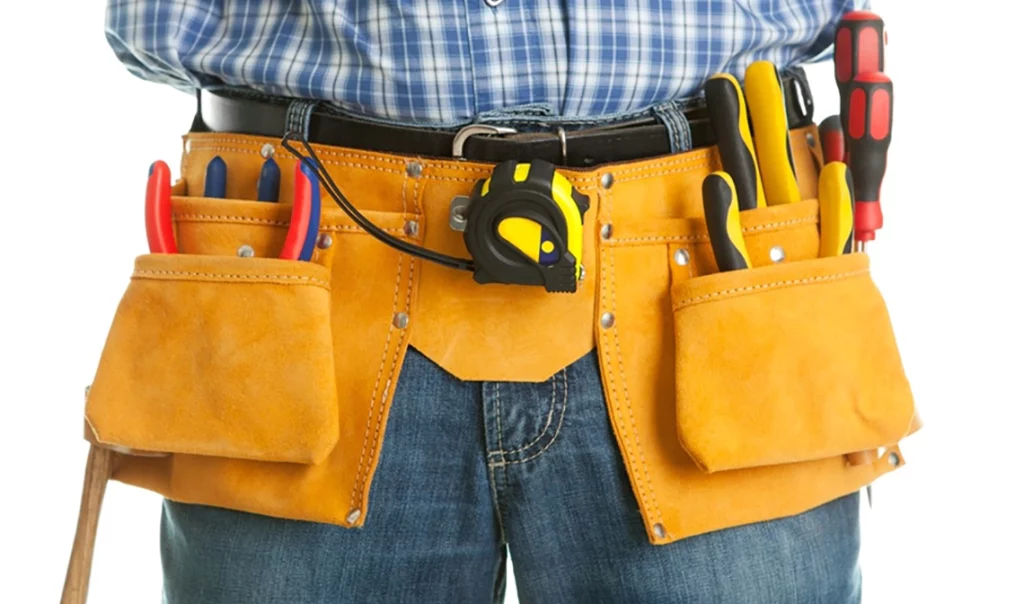
Plumbing emergencies never happen according to plan and always become an unpleasant surprise no one wants to get. Now you know how to act correctly in the event of an accident to prevent the spread and complication of the breakdown. It’s worth keeping an eye on the condition of your plumbing and responding immediately to any triggers to eliminate the problem promptly before it escalates into a disaster.
FAQ about what to do in the event of a plumbing emergency
A plumbing emergency can be anything from a burst pipe, a gas leak, a clogged drain causing water backup, or a broken water heater that is causing flooding or other damage.
The first step is to shut off the water supply to your home or business to prevent any further damage. If the problem involves gas, turn off the gas supply as well. Then, contact a professional plumber immediately.
You should take steps to minimize any damage. This can include mopping up water, turning off any electrical devices near the affected area, and moving furniture and other belongings out of harm’s way.
Look for a plumbing service that offers emergency services and has good reviews and ratings from previous customers. It’s also important to make sure the plumber is licensed and insured.
Regular maintenance of your plumbing system can help prevent emergencies. This can include scheduling annual inspections, cleaning drains regularly, and replacing old pipes and fixtures. It’s also important to avoid flushing anything other than toilet paper and human waste down the toilet and not putting grease or food down the sink drain.
Yes, we understand that emergencies can occur at any time. POM Plumbing offers 24/7 emergency services, including weekends and statutory holidays, across Toronto and the GTA to help protect your home from water damage.



